2 min read
Gospel-Centered from the Start
“Let us hold unswervingly to the hope we profess, for He Who promised is faithful…Jesus Christ is the same yesterday, today, and forever.” (Hebrews...
Dr. Ward Merkeley has a soft spot for people in need. Working as an emergency room physician for more than two decades at Providence Holy Family Hospital, he saw desperate needs of every kind.
“You see people who have severe depression, addiction issues, different personality disorders. And you recognize them but there's really not much you can do” in the context of the ER. The amount of time he could spend with patients was too small to address those chronic issues.
When he retired, Dr. Merkeley didn’t want to stop caring for patients. “Medicine has been very good for me, so I feel an obligation to give back to the community.” He followed in the footsteps of an admired colleague at Holy Family, Dr. Leroy Byrd, who was the longtime director of the medical clinic at the House of Charity in downtown Spokane. For nearly a decade, Dr. Merkeley helped care for the poorest of the poor in the HOC clinic.
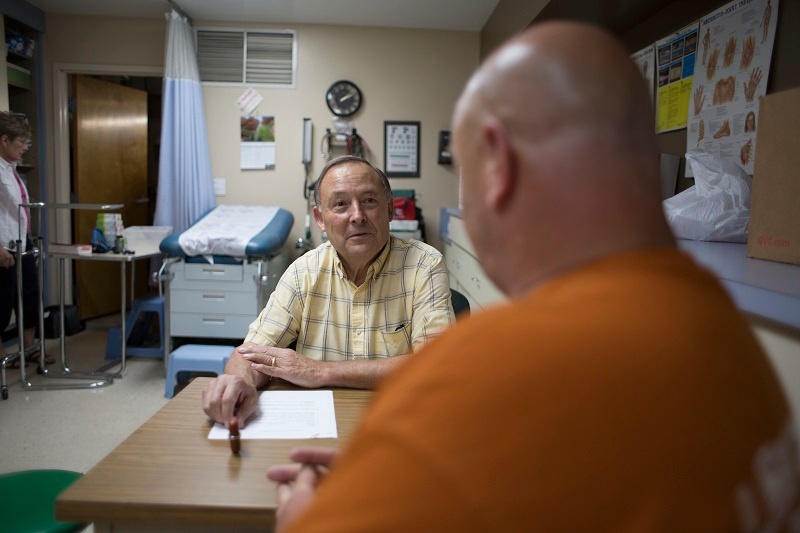 A favorite aspect of his volunteer work was supervising the Spokane-based University of Washington medical students who got training and experience by working with the House of Charity patients in a weekly Saturday clinic that fit their class schedules well.
A favorite aspect of his volunteer work was supervising the Spokane-based University of Washington medical students who got training and experience by working with the House of Charity patients in a weekly Saturday clinic that fit their class schedules well.
When the House of Charity clinic closed down last year in favor of a new Providence clinic nearby, there was no place to treat patients on Saturdays. That’s how the Union Gospel Mission Clinic got a unique opportunity: Dr. Merkeley proposed moving the Saturday clinic – and its pool of energetic, service-minded students – to UGM.
The prospect of a Saturday clinic was exciting not just to the students and UGM staff but to UGM residents and other clinic clients. Many of them have started jobs or are in recovery classes during weekday hours, so an evening or weekend clinic was easier to access.
But one significant obstacle presented itself: The UW had a policy that officially sanctioned service projects for its medical students must be at organizations with a nondiscriminatory hiring policy. While the UGM Clinic will serve people of any or no faith, UGM guards its gospel focus by hiring only Christians for staff positions. Thus, UW wouldn’t be able to sanction its students’ service here.
Dr. Merkeley and some of the students went to the state attorney general’s office with a plea to waive that policy. “They’re so excited about UGM that they want to see it work,” he says.
Medical student Margaret Bruce wrote to state officials:
“Christianity is a large part of who UGM is, but the way they choose to use Christianity is very unique. They use Christianity to show people who walked into their shelters that as humans, we are not perfect and we all make mistakes. … The philosophy of their medical clinic is to hear their patrons’ stories, as that can help in their treatment and addiction recovery. … As medical students, our professors have preached to us about the importance of listening to our patients. Volunteering at a location that values the importance of listening will help to engrain this value in the medical student education.”
Bruce also quoted Spokane Medical Student Association President Justin Thompson, who said: “While I know some students had concerns that it was a faith-based organization, I did not see any conflicts between that and the delivery of health care to anyone who needs it.”
The attorney general responded to their plea quickly and favorably, paving the way for the Saturday clinic to begin at the end of August.
Because of Dr. Merkeley and his efforts to recruit other doctors to volunteer for the Saturday clinic, patients receive a high standard of care. Medical students see patients alongside an experienced physician, so the students can learn under qualified supervision and patients get the benefit of both providers.
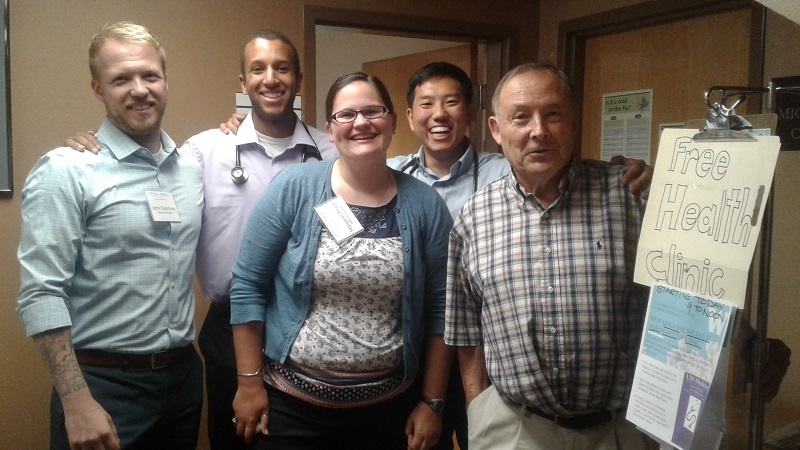 Moreover, as Bruce mentioned in her letter, they all get a chance to spend more time with patients than in other clinical settings. It’s especially meaningful for poor and homeless patients – who may not have seen a doctor for years or have had bad experiences in medical settings – to feel like they’re being heard and understood. Plus, they often need help taking the next step.
Moreover, as Bruce mentioned in her letter, they all get a chance to spend more time with patients than in other clinical settings. It’s especially meaningful for poor and homeless patients – who may not have seen a doctor for years or have had bad experiences in medical settings – to feel like they’re being heard and understood. Plus, they often need help taking the next step.
“One thing I think I bring is that I have a pretty good knowledge of what types of services are available in this city,” Dr. Merkeley says. He can make a call on behalf of a patient and help them navigate the options available for treatment.
That kind of knowledge and advocacy is invaluable to people who are essentially broken and lost. Especially for elderly patients who struggle to get around, that level of care makes a big difference.
Dr. Merkeley also appreciates the resources available within UGM’s ministries to provide holistic care.
“Medications aren’t always the answer,” he says. The mental, emotional and spiritual healing people experience in the recovery programs is another big piece of the puzzle. “It transforms these people’s lives, so they can get back into society.”
Medical professionals in all areas – doctors, nurses, optometrists, you name it – are needed at the UGM Clinic! Call 509.535.8510 for more information or click below to sign up for a volunteer orientation.

2 min read
“Let us hold unswervingly to the hope we profess, for He Who promised is faithful…Jesus Christ is the same yesterday, today, and forever.” (Hebrews...

9 min read
To celebrate 75 years of serving the Inland Northwest, we are spending the year remembering our history and the faithfulness that built us and...

2 min read
In 2026, Union Gospel Mission Inland Northwest is approaching our 75th Anniversary! This is a milestone that invites gratitude and reflection, and...
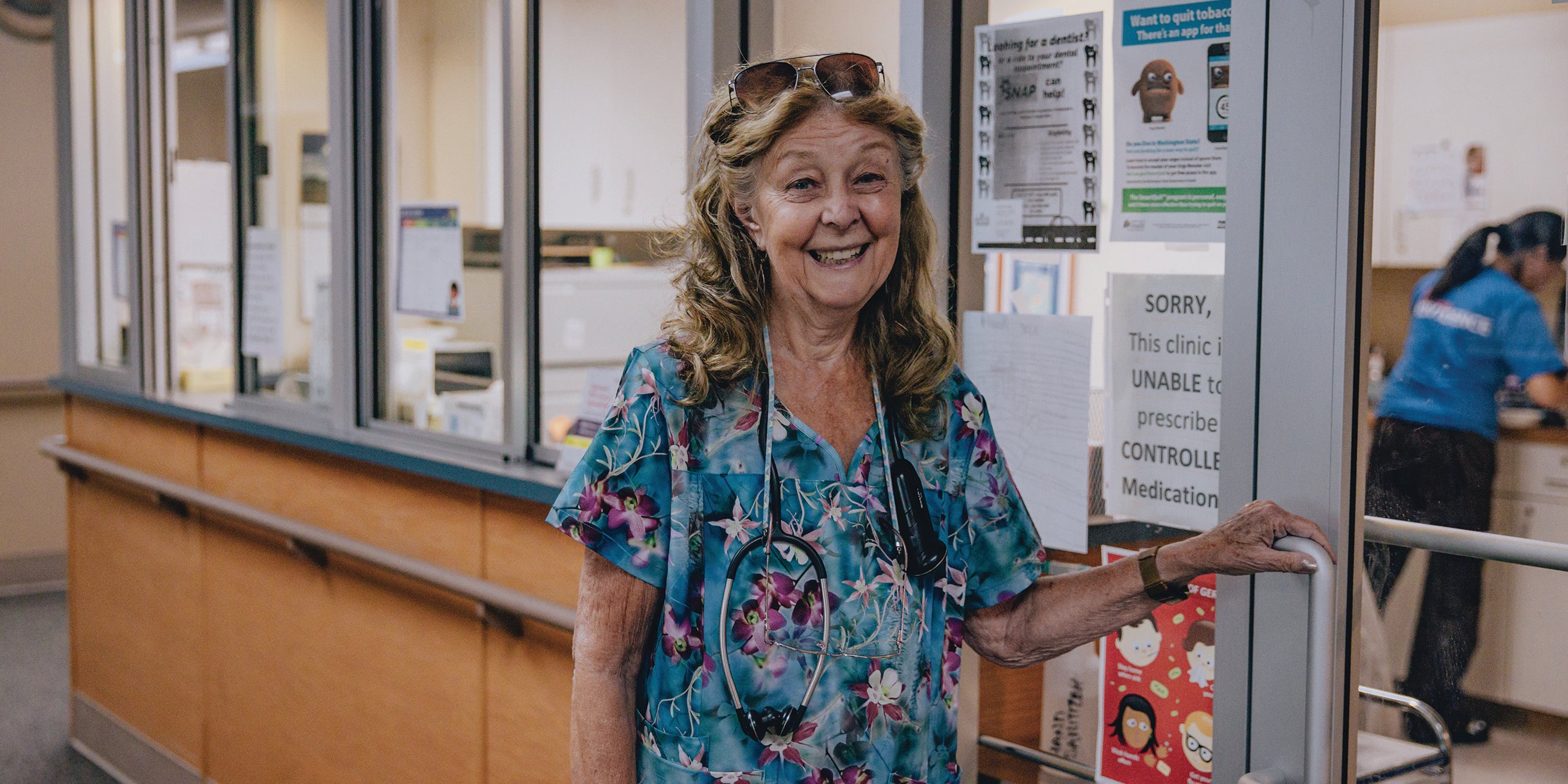
UGM received a remarkable gift when Nurse Practitioner Lorna Schumann joined the Medical Clinics as a volunteer.
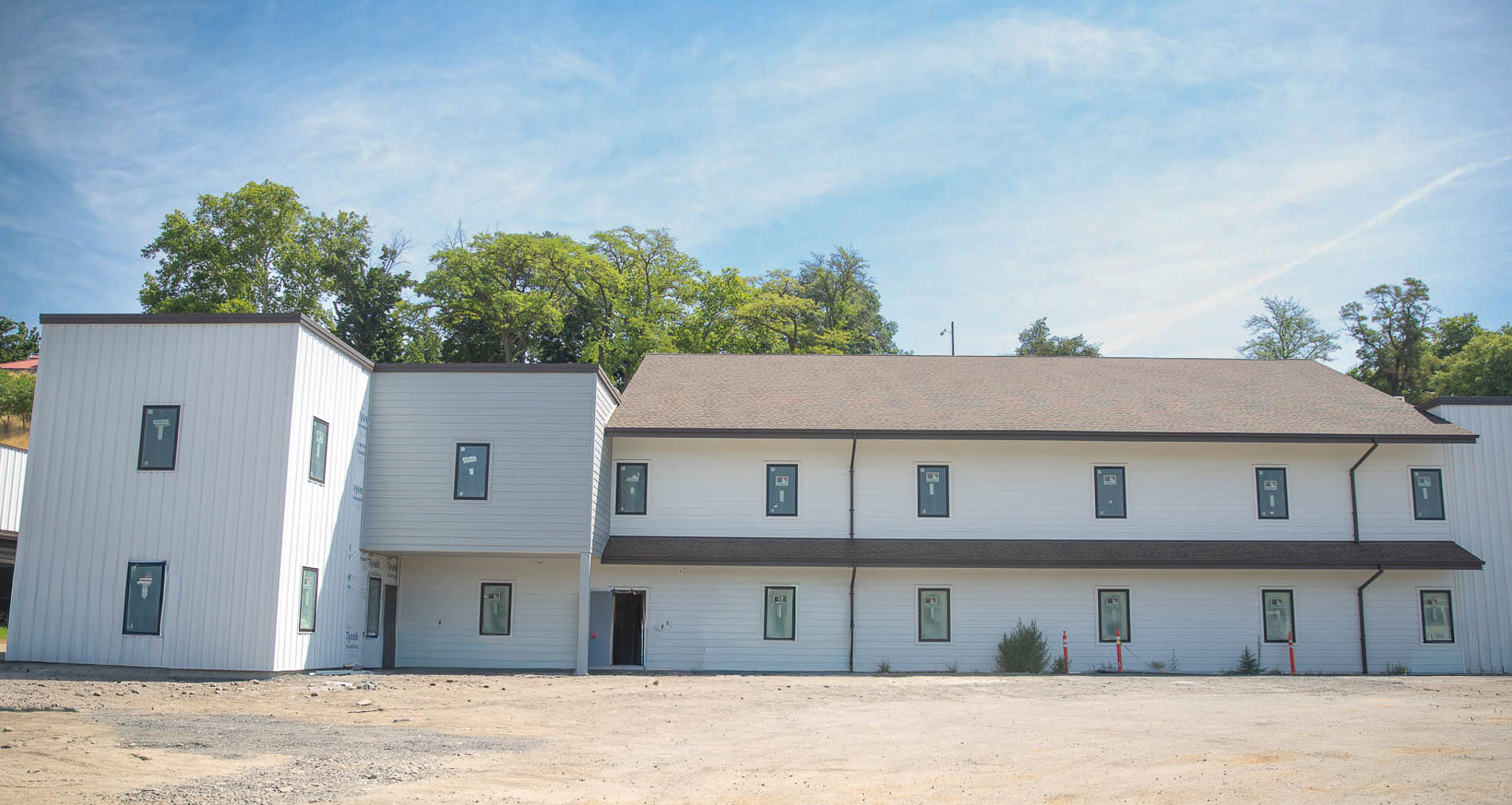
More than 20 years ago, the idea of a shelter in the Lewiston-Clarkston Valley was born, and in the past few years has begun to take shape. Soon,...
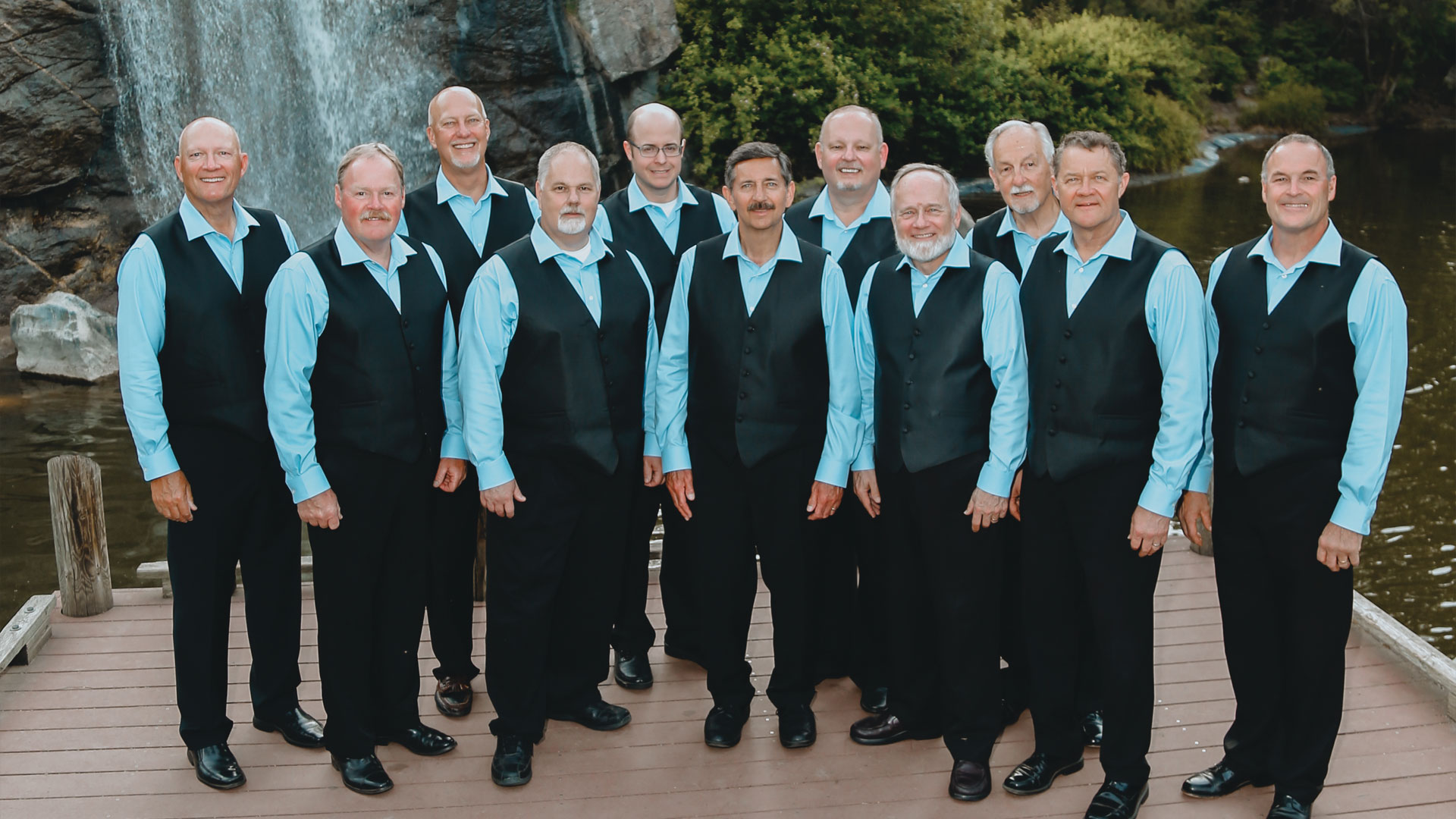
“We tell people we’re not here to perform; we’re here to worship,” says His Song president Joel DeVries. His Song is a men’s gospel singing group...